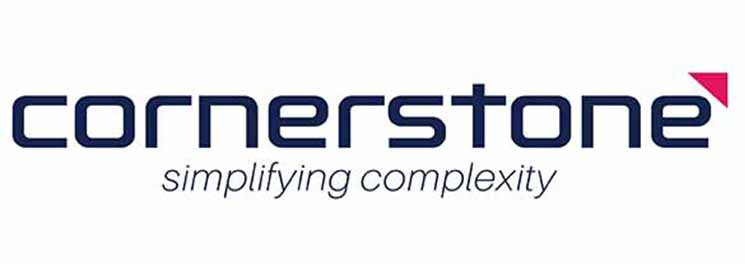
Nissan Australia Aligning sales, marketing, supply chain and operations to boost market share with IBM Analytics
Nissan Australia imports, markets, and sells Nissan vehicles. Specializing in the Light Commercial Vehicle (LCV), Sports Utility Vehicle (SUV) and passenger car segments, the company aims to gain a significant market share of the approximately 1.1 million new cars sold annually in Australia
“IBM Analytics has the potential to help us transform the way we plan and improve decision-making.” Peng Tan GM – Finance Nissan Australia
Business challenge
To grow its local market share, Nissan Australia must import the right vehicles at the right time to maximize available sales opportunities in each of the new-vehicle segments in which it competes.
Transformation
Sophisticated supply chain modeling enables Nissan to optimize its “car flow,” helping it make smarter importing decisions and tailor marketing campaigns to maximize sales of existing inventory
Business benefits:
Managing the complexities of car flow
Like most modern manufacturing industries, the automotive sector depends on a global supply chain that becomes ever more sophisticated—and the complexity doesn’t end even when a new car rolls off the production line.
From the factory, the car must be shipped to its final destination—a dealership somewhere in the world that will sell it to an end-customer. And for national importers such as Nissan Australia, coordinating the importation of thousands of vehicles, in hundreds of different models, grades, colors and configurations to meet varying customer demands in different regions, becomes a complex challenge.
Peng Tan, GM – Finance at Nissan Australia, explains: “As a business, we set our targets based on the market share we want to achieve in each of the vehicle categories in which we compete. We then plan what we call the ‘car flow’—the process of ordering, importing, and delivering cars to our dealerships around the country—to achieve those targets.
“Almost every important decision we make depends to some extent on how many vehicles of each type we want, and how quickly we can obtain them. Until you get the car to the dealership, you can’t sell it—and you can’t sell accessories or finance packages for it either.”
Until recently, Nissan Australia’s car flow planning process revolved around a legacy planning tool, supplemented by spreadsheets. The use of spreadsheets made version control difficult—which was a particular problem because the company’s car flow is constantly evolving. Peng Tan comments: “The problem is that the car flow changes whenever production availability changes. If you’re managing it in spreadsheets, you have to continually update the information manually to keep track of which models, grades and variants of cars are available to import. This creates a lot of different versions and becomes difficult to coordinate.”
Gaining deeper insight with a detailed car flow model
Nissan Australia decided to upgrade its car flow forecasting process by adopting a more sophisticated business planning platform.
“I had good experience of working with IBM® Cognos® Express in a previous job, and our new CFO also believed it would be a good solution for this challenge,” says Peng Tan. “The upgrade path from our legacy solution was relatively smooth and compared to some of the other options we investigated, it was also considerably more cost-effective.”
Working with Cornerstone, an IBM Premier Business Partner that specializes in performance management and analytics solutions, the Nissan team built a basic car flow model based on data from its ERP system as a proof-of-concept. The success of this project helped to build a business case for a full-scale deployment.
“This wasn’t a Finance-led project—the business case was based on improving collaboration between all parts of the business, gaining deeper insight into operations and making better decisions,” says Peng Tan. “By understanding our car flow, we can increase our control of inventory – so we can make sure, for example, we have the right mix of manual and automatic cars to meet customer demand, or we are more agile in our paint choices when a specific color is becoming more popular or going out of fashion.”
The new IBM Cognos Express car flow model gives Nissan Australia a much more granular level of insight across all the different grades of each car, all of the colors, and even the dates when each vehicle is imported.
“The vehicles’ production month is crucial to help us keep our profit and loss forecasts accurate when currency movements occur,” explains Peng Tan. “If we’re forecasting 12 months into the future, we need to take into account the relative and forecasted exchange rates at the time of vehicle production to keep the results accurate.
“More importantly, Cognos Express synchronizes with our integrated system landscape which enables us to monitor the cost-base of each model currently in stock based on its production month. This level of insight is another big advantage of the Cognos Express model.”
Supporting smarter decisions
Peng Tan says: “We are still in our infancy with the IBM Cognos Express solution, but we envision our whole car flow management and forecasting process to be much more efficient once all our users have gained more experience with it.
“Cornerstone did an excellent job of the model-building and documentation, so we just need to develop the reports to meet our full requirements.”
As the use of the solution becomes part of business-as-usual within the company, Nissan Australia is gaining the ability to forecast profit and loss much more accurately, based on a car flow model that gives a much more precise view of current orders, lead times and inventory.
“From the finance perspective, the increased accuracy of the forecasts is a great benefit,” says Peng Tan. “More importantly, the time it takes to turn around a forecast or budget will be dramatically reduced in the future, with better accuracy.”
He concludes: “Looking at the bigger picture, the benefits will extend far beyond finance: almost every area of our business will benefit from greater insight into the car flow. With help from Cornerstone, our adoption of IBM Analytics technology has the potential to transform both financial and operational planning and raise the standard of decision-making throughout the business.”
Piers Wilson, Director at Cornerstone, adds: “We really enjoyed working with the team at Nissan Australia, and we are very pleased that our implementation has driven so much change.”
Download the case study
Download the case study here
Talk to us about your supply chain challenges


